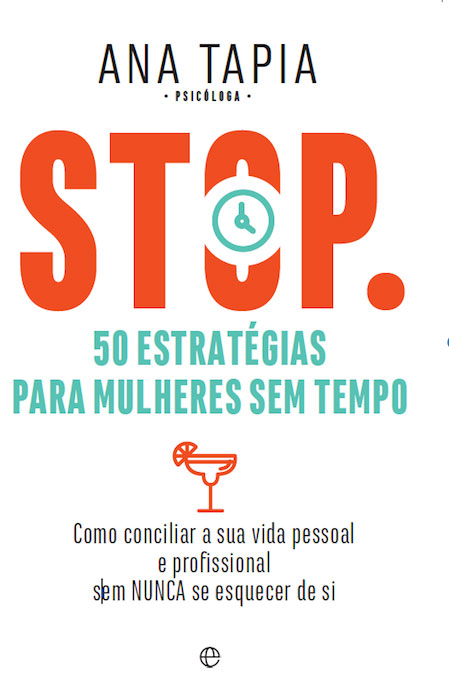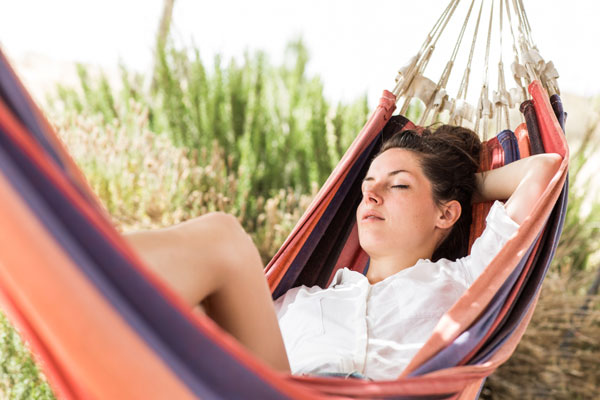Stress on holiday? No way!
“All the arts contribute to the greatest art of all,
the art of living.“
Bertol Brecht
What is stress?
Stress is an English word meaning “pressure” or “tension”. In physics, stress explains elasticity, the property of a body that allows it to recover its original size and shape after being compressed or stretched by an external force (Hooke’s Law – 1658). The maximum amount of stress a body can withstand before it is permanently deformed differs from body to body. In psychological terms we speak of stress to indicate the reaction resulting from the perceived inability to cope with the demands and demands of both a physical (discomfort, physical pain, illness, noise, heat) and psychological nature (deadlines, interruptions, conflicts, lack of money, etc.).
Not all stress is bad, there is good stress (eustress) and bad stress (distress).
Good stress vs Bad stress
Good stress (eustress) is the tension and excitement that makes you organise your holidays, prepare for them and look for ways to relax, socialise, learn and have fun. Good stress develops and is nurtured in an environment which is considered to be safe: friendly and fun people, pleasant and welcoming surroundings, a suitable temperature, challenges which you can achieve.
Bad stress (distress) develops in the face of any intuition or perception of real or imagined threat, which signals danger and in which you feel or sense that you do not have the capacity or the means to deal with a given situation (arguments, lack of understanding, endless traffic, unbearable heat, among others).
What are the ways we have to respond to the tension signals that represent danger and how can we feel safe?
Stephen Porges developed the polyvagal theory to explain how our nervous system reacts to the environment depending on cues of danger or safety. It seems that there is a hierarchy of response from your autonomic nervous system that translates into behaviours that arise and can help cope with and transform bad stress: immobilisation, action and social relationship.
The immobilisation mode is expressed when faced with the most unexpected situations, you block, remain unresponsive or in a state of inaction. At other times, it seems as if he switches off, goes into automatic mode and stops being in the here and now: he enters the mode of “being on the moon”. These are instinctive and more primitive responses that one has when one feels that one is not in physical and psychological safety. There are several ways to deal with this state of back stress (as it results from the action of the parasympathetic system responsible for all the automatic actions of your body).
Acting is one of the privileged modes of functioning of survival: do, do, do. We can enter this state when we act to cope with the discomfort of physical stress factors: noise, traffic, having too many things to do, not being considered, heard, etc. To get out of this state, each person reacts differently: either they get into the mode of organising and cleaning, they walk, they shout, they sing (singing is a great stress manager), they write, they get it off their chest with someone. This mode of action is the responsibility of the sympathetic nervous system.
And finally, the social relationship mode means that you feel safe when you are in tune with other people whether you are alone or in company. Everything that makes you feel in this state can be activities as varied as playing games, having a hobby, feeling the sun on your face, listening to music, laughing without reason, being aware of the here and now, breathing by paying attention to breathing in and out, among others. But when you meet people you don’t feel safe with or in tune with, when you have to think three times before you say something, then you are not in social safety mode but, rather, fear mode.
None of these ways is bad or good in itself, what matters for you to feel good is that on a daily basis you can experience the action of these mechanisms of your body that translate into behaviours and feelings of well-being or overload (tiredness, boredom, among others).
Why is it so important to take a few days off?
A holiday is an opportunity to disconnect from routine and everything connected to you. Which requires moving away to other environments, doing other activities, having entertainment that is challenging, mentally absorbing and meaningful to you.
In the 19th century doctors recommended rest cures, especially for women. They were bedded down in dark rooms on a salt-free diet. Others recommended, especially for men, fresh air and vigorous exercise[1] – a 2015 study found that “71% of workers who took regular holidays reported being satisfied with their work, compared to 17% of workers who did not”.
How to ensure holidays are stress-free?
To ensure your holiday stays free from bad stress disconnect from your usual routine, have a laugh, use and abuse hobbies, sleep and naps and call the kids and grown-ups. All these strategies have been identified in my book “STOP – 50 Strategies for Women without Time“.

5 Tips for a stress-free holiday:
1. Disconnect from the usual routine
People experience greater flow, purpose, meaning and satisfaction when their leisure time and holidays are occupied with challenging tasks that allow for effortless absorption, rather than indolent, purposeless pleasures. It all depends on how you do it. Listening to a song with attention, contemplating a landscape or any activity, becomes indolent when you do not pay full attention, when you do not enjoy what you do, when the task is an end in itself and not a means. In the end, it is all about the meaning you attach or not to each thing you do.
To experience this ‘disconnection from work and/or routine’ you have to prevent your free time from being interrupted by work-related issues (telephone, e-mail, being constantly with people connected or in contexts connected with your work). These situations diminish the recovery provided by leisure time.[2]
In a study of commercial pilots, Macquarie University psychologist Bem Searle found that pilots’ ability to “switch off” increased – but only when they stayed in hotels fairly far from airports.[3]
2. Laugh
“Laughter is the best way to burn calories.”
Audrey Hepburn
Laughter is the physical expression of a feeling or emotion (joy, sadness, fear or anger) relieves tension and 90% of the time you laugh there is no particular reason. In other words, you don’t need to have a reason to laugh. Every time you laugh you stimulate, as in gymnastics, different parts of the body.
When you laugh, according to a study carried out by the University of Maryland Medical School in Baltimore, it causes an expansion of the blood vessels and thus increases circulation. Laughing improves the oxygenation of the brain, helps the clarity of ideas, gives energy for general intellectual functions and concentration. By uttering the sounds associated with laughter, preceded or succeeded by a few minutes of deep breathing and exhalation, tension is relieved. The stress factors are there, but you unexpectedly feel or begin to see the situation differently.
The laughter we are talking about here is not about a sense of humour, jokes or other laughter that has a reason, for these, often aspects of irony, sarcasm are present which are subtle forms of aggression (when attacking the other person or a group) and which end up being in some way destructive[4]. Laugh and improve your intellectual and creative output and your well-being.
3. Have hobbies to exercise peace of mind and maintain the physical and mental plasticity you need in your daily life.
“A hobby is not a holiday.
It is not just a momentary relaxation.
A hobby is not half a day, but half a life.
A hobby is a way of exercising peace of mind.”
G. K. Chesterton
A good way to relax and reduce stress in the long term is to get involved in a fun, quiet sport or hobby. If you spend all day competing, you will benefit from an opposite activity in your free time (and vice versa). Slow physical activities, such as sailing or hiking, are advised for those who spend their working time pressured by competition and lack of resources (time needed, adequate equipment, enough people) to do what is important. Reading novels, watching television or socialising can also be very positive.
Most important of all, don’t forget to have fun, to maintain a playful dimension to your life and to integrate any hobby you do.
4. Sleep and Nap
“What reassures us in sleep is the certainty that we return from it.
And it cures us temporarily of fatigue by the most radical of processes,
that is, by arranging for us to cease to exist for a few hours.”
Marguerite Yourcenar
It is of great importance to take care of this basic vital regulating mechanism that is sleep. Morpheus is a Greek god who points out the importance of deep sleep to regenerate your body and mind. If you don’t sleep, your ability to concentrate and efficiency suffer.
Did you know that you have a biological clock that regulates your sleep patterns, alertness, cell regeneration and the production of melatonin (which produces drowsiness and lowers body temperature)? When this clock is working properly, the release of melatonin occurs in opposition to sunlight and sleep is more restorative. If you are used to being tired all the time, you will be amazed at how alert and full of energy you will be when you start sleeping normally. On average, you need about eight hours of sleep a night (although this can vary from three to eleven hours, depending on the person and age).
5. Call the kids and grown-ups
“To be irreplaceable, you need to be different.”
Coco Chanel
Support and delegate to your tribe of allies. You are on holiday, don’t make the mistake of doing anything that can be done by others. Your tribe of allies are all the people you can share the work with and delegate. Hire (a maid), subcontract (cleaning and ironing, pre-cooked or already prepared meals), prepare together (husband, children, parents, etc.). It is up to you to lead this tribe: create an understanding of what is important and divide up responsibilities and tasks. Where there are rights, there are duties. Why does everything have to be centred on you? This doesn’t mean you stop being attentive, courteous and helpful, but it does free you up and make you more available to be present and enjoy. After all… you are on holiday and… stress on holiday… no way!
“If not me, then who?
If not now, when then?
And if only for me, who am I?
If not me who does it,
who will do it for me?
If I don’t do it now,
when will I be able to do it?”
Rabino Hillel
[1] Pang, A. S.-K. (2017). Descansar – A razão pela qual conseguimos fazer mais quando trabalhamos menos. Lisboa: Circulo Leitores.
[2] Csikszentmihalyi, M. (1990). Flow: The Psychology of Optimal Experience. New York: Harper & Row.
[3] Pang, A. S.-K. (2017). Descansar – A razão pela qual conseguimos fazer mais quando trabalhamos menos. Lisboa: Circulo Leitores.
[4] Goodheart, A. (1994 ). Laughter Therapy.Stress Press.

